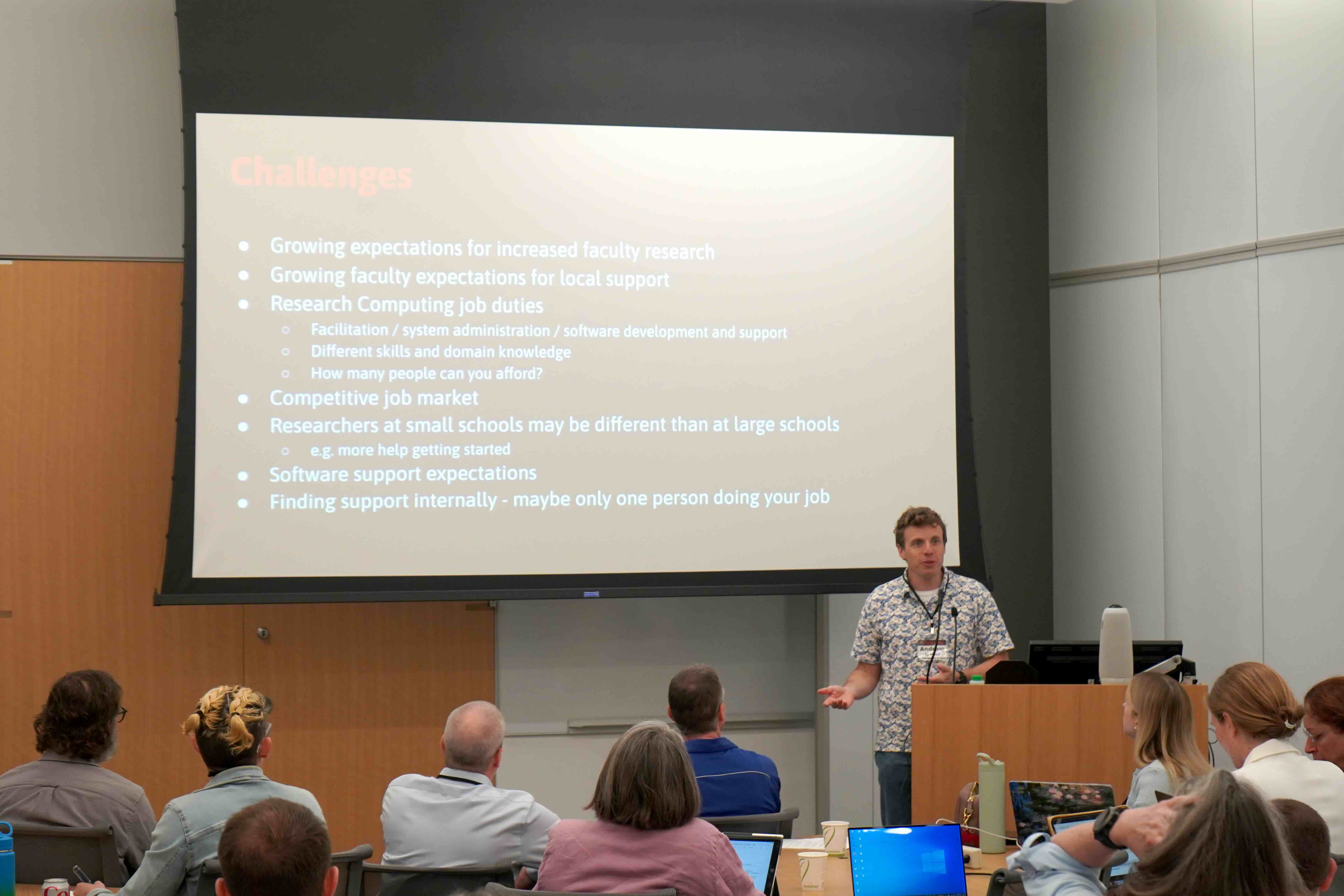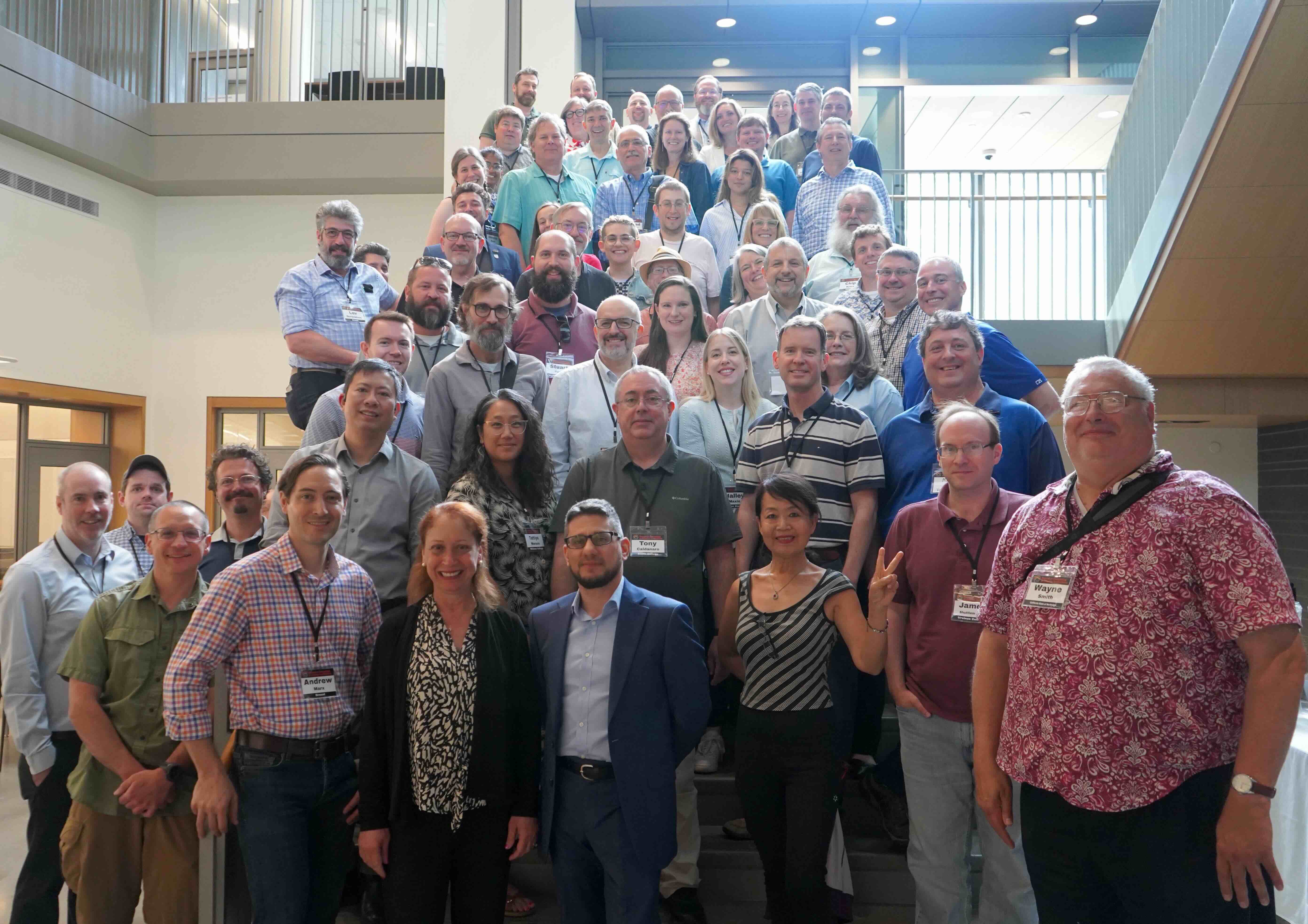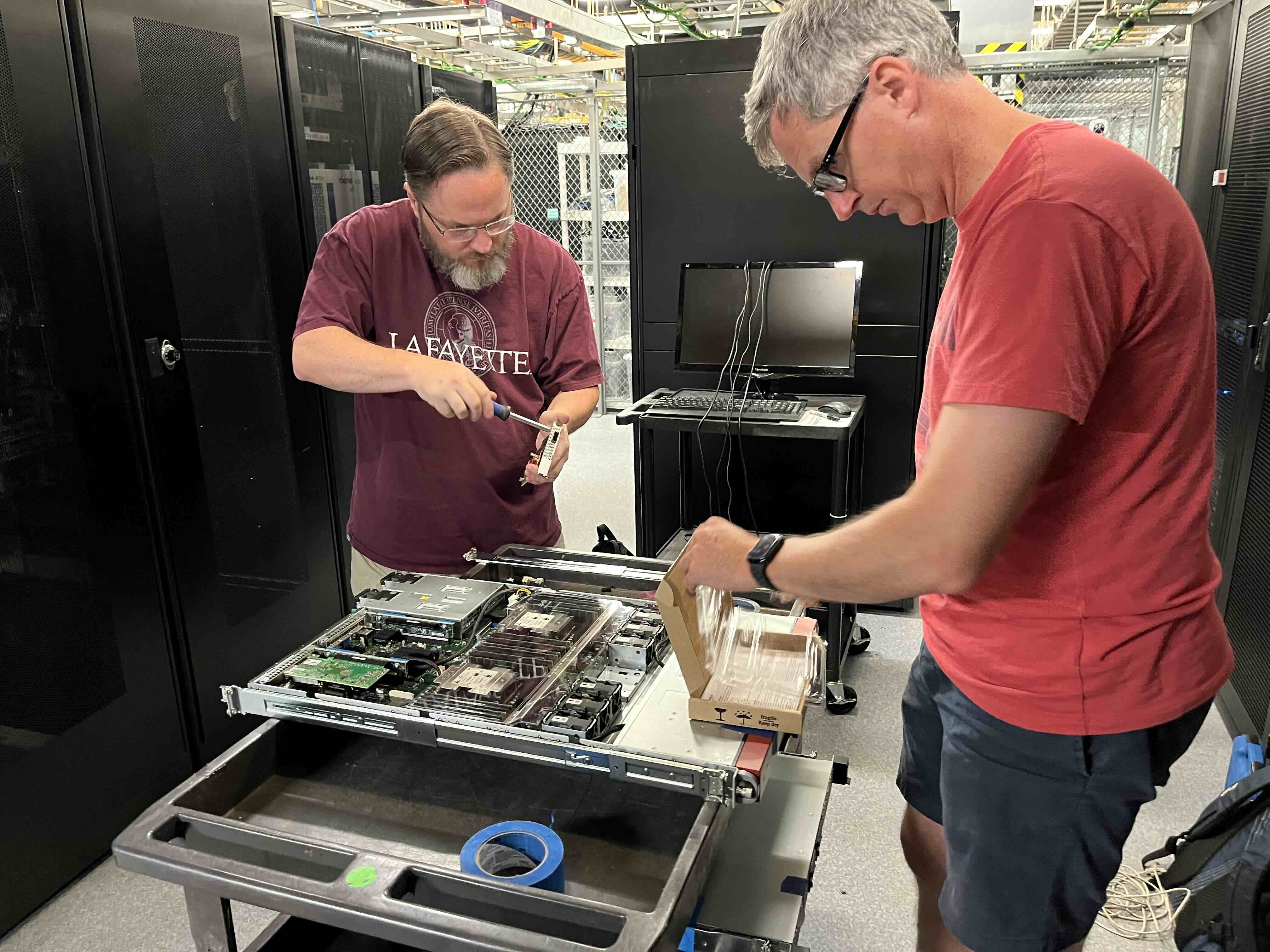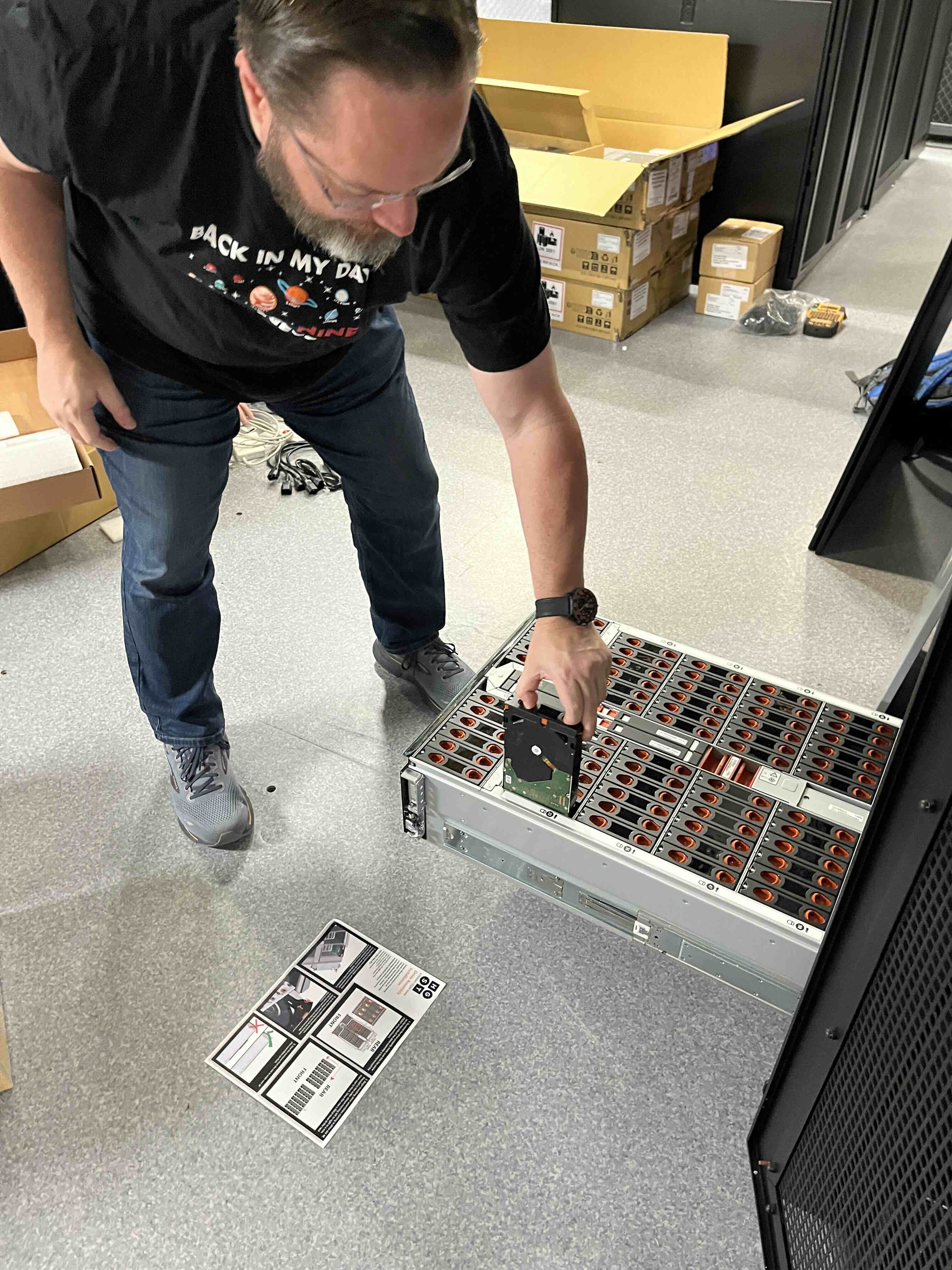Small colleges across America may be best known for their liberal arts curricula, but a growing number rely on high performance computing (HPC) resources to support the burgeoning research endeavors of their faculty and students.

The National Science Foundation considers liberal arts colleges to be under-resourced for research computing compared to larger R1 institutions that may have large cohorts of research faculty that attract hundreds of millions of dollars for major collaborative projects, said Jason Simms, research computing manager for Swarthmore College, a Pennsylvania institution home to about 1,700 students and 173 full-time faculty. They tend to have smaller data centers, less infrastructure for data storage, and few staff members dedicated to supporting research computing needs, he explained.
Even with top-of-the-line computing hardware, liberal arts colleges may struggle to staff these resources with trained professionals who know how to use them most effectively, Simms said.
"If you don’t have a person who can help faculty through research facilitation and understand the resources available, any kind of research endeavor will ultimately fail,” he said.
Conference highlights computing solutions
Because of the similarities in technology challenges among small liberal arts colleges and the mutual need to find solutions, research computing professionals began gathering to discuss their issues. In 2024, the Research Computing at Smaller Institutions (RCSI) conference was established at Swarthmore College, attracting about 90 attendees from 60 institutions. The conference covers topics such as data and user management, policies, workflows, tools, cybersecurity, and human resources.
“We all have the same challenges, and no one has it figured out,” Simms said. “What might work for us might not work for other schools—there aren’t easy canned solutions.”

One solution that several small colleges have adopted is Open OnDemand. Developed by the Ohio Supercomputer Center and launched in 2017, the open source web portal has been deployed at more than 2,000 locations across the globe to provide easy access to research computing resources, especially for faculty and students who may be unfamiliar with the command-line interfaces traditionally required for HPC use.
At the 2025 RCSI conference, Sean Anderson of Wake Forest University presented about how his institution incorporated Open OnDemand into its research computing operation and how it supports classroom instruction. In addition, several other presentations touched on Open OnDemand’s role in improving access to HPC resources, reducing time to science and education, Simms said.
“Undergraduates are used to iPads and phones. Many of them don't understand concepts like hierarchical file structures,” Simms said. “You can develop apps and virtual desktops that can lower that barrier for users and make it much more immediately appealing to them.”
Open OnDemand aids shared ecosystem
Swarthmore College and Lafayette College, another liberal arts institution in Pennsylvania, chose a unique way to manage some of the issues that smaller schools face in handling HPC demands: In 2024, they merged their research computing operations to better serve both campuses.
The two institutions already had successful ongoing partnerships in areas such as instructional technology and have similar undergraduate STEM offerings and research programs, Simms said. Each school had one full-time employee with expertise in research computing, in addition to other IT staff who provide support.

Open OnDemand has helped the new research computing operation support both colleges, Simms said. Lafayette (where Simms had worked previously) and Swarthmore had integrated the web portal in 2019 and 2021, respectively, and have been upgrading to each new version since that time.
The merger of the two HPC operations boosted use of Open OnDemand, as the institutions chose to make the web portal the first line of access to the resources. Previously, faculty and students used the command line to run jobs on computing clusters, unless they had a need for tools such as Jupyter notebooks that would prompt the staff to send them to Open OnDemand.
“We now prefer that you log in via Open OnDemand,” Simms said. “Non-Open OnDemand access is the exception vs. the rule. It makes managing our user accounts a lot simpler.”
One benefit of Open OnDemand is that both colleges can build a custom instance that is branded to each institution. This can make users feel more comfortable using the portal and can allow the institution to showcase it as an integrated service of their research computing operations, Simms said. Simms and colleagues now are hoping to develop an even more comprehensive dashboard for their users, drawing on examples institutions presented at the inaugural Global Open OnDemand (GOOD) conference held in March 2025.
Meeting ongoing HPC needs

Community resources such as Open OnDemand and the Research Computing at Smaller Institutions conference are helping HPC professionals support their institutions’ current needs while tackling emerging issues. The combined research computing operation of Swarthmore and Lafayette is fielding more faculty and student requests for artificial intelligence resources and is seeking to understand how they can be provided locally. In addition, the colleges are grappling with disparate needs for data storage as faculty work with larger data sets, including various kinds of protected date.
Long known for excellence in teaching, Swarthmore recently added research into its mission statement and is actively encouraging faculty and students to engage in research activity, Simms said. Unlike R1 institutions, where large groups of faculty members may be involved in team research projects or similar studies, small liberal arts colleges tend to have single subject matter experts pursuing individual lines of research. HPC staff need to develop a customized plan for each professor’s collaboration and storage needs, even in areas like the humanities that historically didn’t use research computing resources but are now embracing them, Simms said. Many new faculty members were graduate students in R1 environments with easy access to HPC resources.
“Open OnDemand is another powerful tool in that sense, as faculty are coming from institutions where it is in place,” Simms said. “When they find that we have it here, they are very happy.”
Written by Andrea Gibson
The Ohio Supercomputer Center (OSC) addresses the rising computational demands of academic and industrial research communities by providing a robust shared infrastructure and proven expertise in advanced modeling, simulation and analysis. OSC empowers scientists with the services essential to making extraordinary discoveries and innovations, partners with businesses and industry to leverage computational science as a competitive force in the global knowledge economy and leads efforts to equip the workforce with the key technology skills required for 21st century jobs.